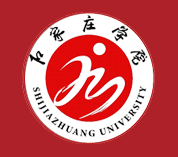On September 18, to thoroughly implement the provincial and municipal Party committees' arrangements for deploying cadres to grassroots communities and to ensure the university's community engagement work achieves tangible results, Party Secretary Chen Liang and Deputy Party Secretary Ji Lihuai led a team from the Organization Department on a special research visit to Beishangzhuang Community in Lianzhou Town, Gaocheng District. Relevant leaders from Gaocheng District and Lianzhou Town accompanied the research team and participated in the discussion。
At the discussion, Chen Liang put forward clear requirements for further advancing and enhancing the quality and effectiveness of the community engagement work. He emphasized that : first, it is essential to strengthen Party building leadership and create a "red fortress" for rural revitalization. The university should leverage its rich experience and concentrated resources in Party building to assist the Beishangzhuang Community Party Branch in standardizing organizational life and building a strong backbone team of Party members. It should promote the Party's innovative theories and policies to take root at the grassroots level, striving to create a combat-ready grassroots Party organization that "cannot be taken away, can fight, and is good at serving," thereby leading the comprehensive revitalization of the countryside through high-quality Party building. Second, we mustanchor the work orientation and ensure assistance measures "take root". The "external incentives" brought by the community engagement work should be transformed into the "internal driving force" for rural development. In-depth surveys should be conducted to accurately identify the pain points and difficulties in Beishangzhuang's development as well as the urgent needs of the people. Assistance measures should be further refined to ensure that all work is carried out thoroughly and meticulously, effectively solving practical problems at the grassroots level. Third, we must deepen university-local cooperation and build a "heart-connecting bridge" for serving the people.Based on the university's positioning as "local, application-oriented, and international," and taking the community engagement team as a link, the university should actively connect with the development needs of enterprises in Gaocheng District and around Beishangzhuang Community. It should promote the deep integration of the university's disciplinary advantages and human resource expertise with local industrial development, providing technical consulting, talent training, and other intellectual support to small and medium-sized enterprises in Gaocheng District. This will effectively transform university resources into practical contributions to rural revitalization, achieving mutual benefit between the university and the local community.
During the research visit, Chen Liang and his team went deep into the community to inspect the progress of key livelihood projects, including the upgrading of the community's greenery, the renovation of the main gate, and the installation of a convenient bicycle shed. They also visited the office and living quarters of the on-site work team, showing concern for the team members' work and living conditions.
This special research trip served both as an "on-site working meeting" for the university to promote the implementation of its on-site work and as a "morale-boosting session" for the university and local authorities to deepen communication and jointly plan for rural development. Going forward, the on-site work team will take this research visit as an opportunity to continue deepening its collaborative efforts with local authorities. Through more concrete measures and more attentive services, the team will help unlock the endogenous development potential of rural areas, jointly create a new vision of livable, work-friendly, and harmonious villages, and continuously inject the wisdom and strength of higher education institutions into the comprehensive advancement of rural revitalization.
 stamp
stamp stamp
stamp